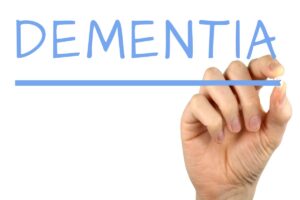Understanding Dementia: A Comprehensive Guide

Dementia is a condition that affects millions of people worldwide. In this article, we will delve into what dementia is, its causes, symptoms, and available treatments. By gaining a better understanding of this condition, we can provide better support to those affected by it.
What is dementia?
Dementia is not a specific disease, but rather a term used to describe a decline in cognitive function. It affects memory, thinking, and reasoning abilities, which can interfere with daily life. Alzheimer’s disease is the most common cause of dementia, but there are other types as well, such as vascular dementia and Lewy body dementia.
Causes of Dementia
Dementia can be caused by various factors, including:
- Alzheimer’s Disease: This progressive brain disorder causes a decline in memory and cognitive abilities.
- Vascular dementia: caused by impaired blood flow to the brain, often due to stroke or small vessel disease.
- Lewy body dementia characterized by the presence of abnormal protein deposits in the brain.
- Frontotemporal dementia affects the frontal and temporal lobes of the brain, leading to changes in behavior and personality.
Recognizing the Symptoms
Early detection of dementia is crucial for managing the condition effectively. Some common symptoms include:
- Memory loss: forgetfulness that disrupts daily life.
- Difficulty Communicating: Trouble finding the right words or following conversations.
- Confusion and Disorientation: Getting lost in familiar places or becoming confused about time and events.
- Changes in Mood and Behavior: Mood swings, agitation, or withdrawal from social activities.
Diagnosis and Treatment
If you or a loved one are experiencing symptoms of dementia, it’s essential to seek medical attention promptly. A healthcare professional can conduct a series of tests to diagnose the condition, including cognitive assessments, brain imaging, and blood tests.

While there is currently no cure for dementia, various treatments can help manage symptoms and improve quality of life.
- Medications: Drugs such as cholinesterase inhibitors and memantine can help manage cognitive symptoms.
- Therapies: Occupational therapy, speech therapy, and cognitive rehabilitation can help individuals with dementia maintain their independence and function.
- Lifestyle Changes: Engaging in regular physical activity, eating a healthy diet, and staying socially active can all contribute to overall well-being.
Support for Individuals and Caregivers
Caring for someone with dementia can be challenging, both emotionally and physically. It’s essential for caregivers to seek support and resources to help them cope with the demands of caregiving.
- Support Groups: Joining a support group can provide caregivers with a sense of community and understanding.
- Respite Care: Taking regular breaks from caregiving responsibilities is essential for preventing burnout.
- Educational Resources: Learning more about dementia and its management can empower caregivers to provide better care.
Promoting Brain Health
While some risk factors for dementia, such as age and genetics, cannot be changed, there are steps individuals can take to promote brain health and potentially reduce their risk of developing dementia:
- Stay Mentally Active: Engage in activities that challenge the brain, such as puzzles, reading, or learning a new skill.
- Exercise regularly: Physical activity has been shown to benefit brain health and reduce the risk of cognitive decline.
- Eat a Healthy Diet: A diet rich in fruits, vegetables, whole grains, and lean proteins can support brain health.
- Get Enough Sleep: Prioritize sleep and aim for seven to eight hours of quality sleep each night.
Conclusion
Dementia is a challenging condition that affects millions of individuals and their families worldwide. By understanding its causes, symptoms, and available treatments, we can better support those affected by it. Early detection, proper medical care, and support for caregivers are essential in managing dementia and improving the quality of life for individuals living with the condition. Additionally, promoting brain health through lifestyle changes can potentially reduce the risk of developing dementia in the future. With continued research and awareness, we can work towards better outcomes for those affected by dementia.
- Unlocking the Secrets: How to Become a Successful YouTuber - March 17, 2024
- Unlocking the Power of Home Loan Calculators: A Comprehensive Guide - March 9, 2024
- Understanding Dementia: A Comprehensive Guide - March 7, 2024






